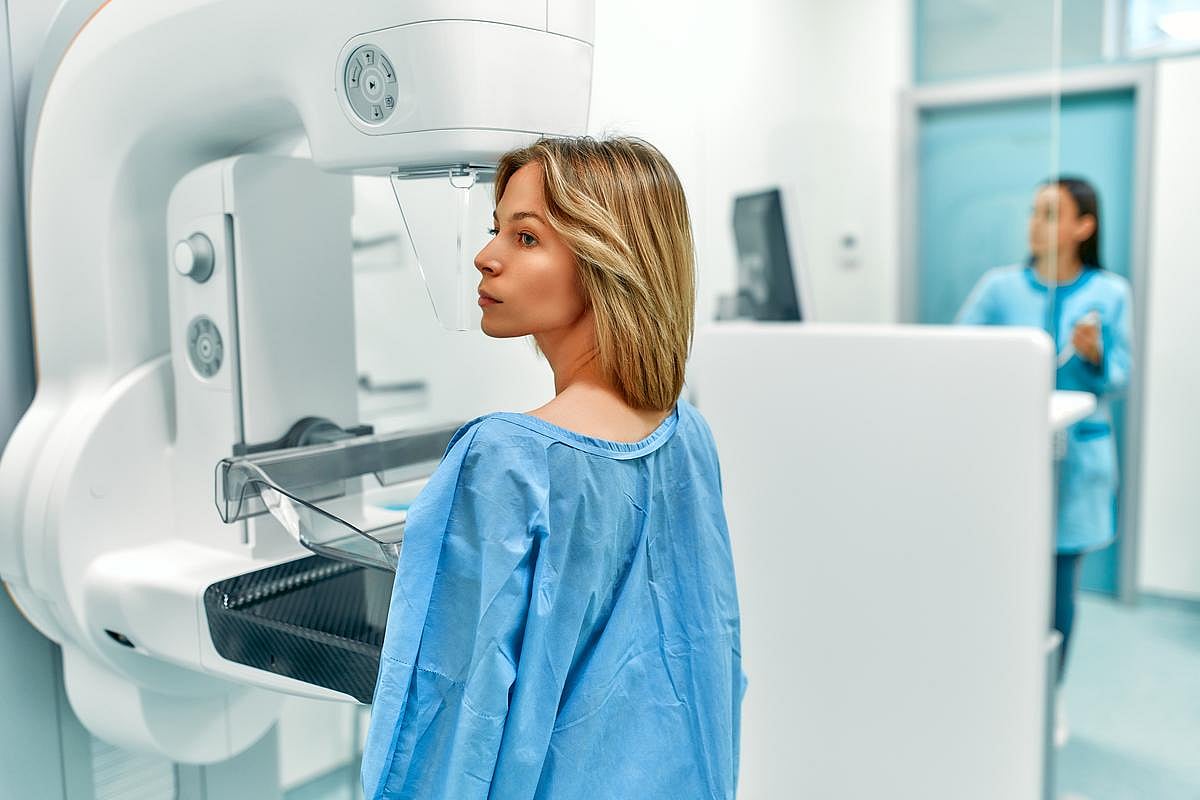to minimize exposure to our patients, especially those who are most susceptible to the virus.
Click here for updates on how we are serving our patients.
1115 South Ave West, Westfield, NJ 07090
(908) 233-2200 - (908) 233-3975 Vaccine Appointment Portal
Get Healthy!

- Dennis Thompson
- Posted April 22, 2025
Most Women Are Comfortable With AI-Assisted Mammography
Women are OK with having an AI program help doctors review mammograms performed for breast cancer screening, a new study says.
About 7 out of 10 women (71%) said they’re fine with an AI program providing backup for a radiologist’s review of their breast X-ray, researchers report in the journal Radiology: Imaging Cancer.
But women only want AI to provide a supporting role – less than 5% were comfortable with AI alone interpreting their screening mammogram, researchers said.
“Patient perspectives are crucial because successful AI implementation in medical imaging depends on trust and acceptance from those we aim to serve,” said co-author Dr. Basak Dogan, a clinical professor of radiology and director of breast imaging research at the University of Texas Southwestern Medical Center in Dallas.
“If patients are hesitant or skeptical about AI’s role in their care, this could impact screening adherence and, consequently, overall health care outcomes,” she said in a news release.
For the study, researchers developed a 29-question survey offered to all patients who underwent mammography at UT Southwestern Medical Center for seven months in 2023. Overall, 518 women filled out the survey.
Women with more than a college degree and those with more knowledge of AI were twice as likely to accept AI involvement in assessing their screening mammogram, results show.
On the other hand, Hispanic women and Black women were significantly more concerned about AI bias and data privacy, results show. As a result, they were much less likely to accept AI in interpreting their mammography results.
“These results suggest that demographic factors play a complex role in shaping patient trust and perceptions of AI in breast imaging,” Dogan said.
Patients with a family history of breast cancer were more likely to request additional reviews, researchers found. However, they also were more likely to exhibit a high degree of trust in both AI and radiologist reviews when their mammogram came back as normal.
On the other hand, patients who’d had an abnormal mammogram before were more likely to ask for further review if AI and radiologists’ reviews conflicted, particularly if AI flagged an abnormality.
“This highlights how personal medical history influences trust in AI and radiologists differently, emphasizing the need for personalized AI integration strategies in mammographic screening,” Dogan said.
Overall, the study shows how important it is to keep talking with patients about the use of AI in health care, to better understand their comfort level with the new technology, researchers said.
“Our study shows that trust in AI is highly individualized, influenced by factors such as prior medical experiences, education and racial background,” Dogan said. “Incorporating patient perspectives into AI implementation strategies ensures that these technologies improve and not hinder patient care, fostering trust and adherence to imaging reports and recommendations.”
More information
Susan G. Komen has more on AI-assisted mammograms.
SOURCE: Radiological Society of North America, news release, April 18, 2025








